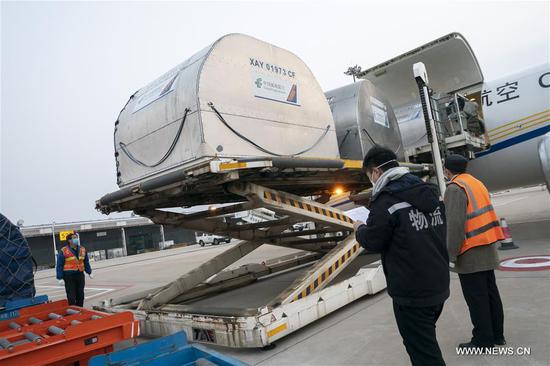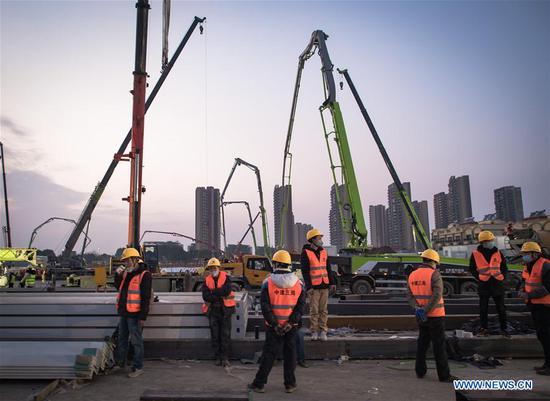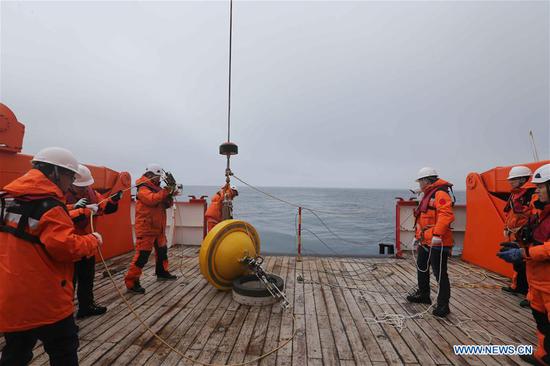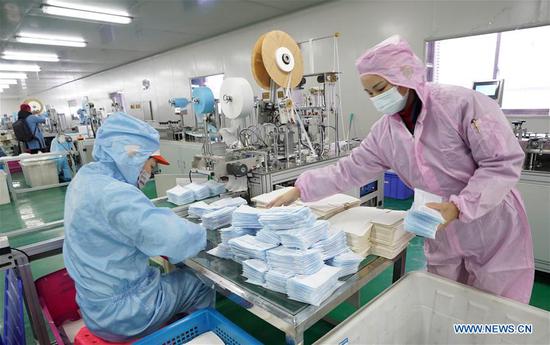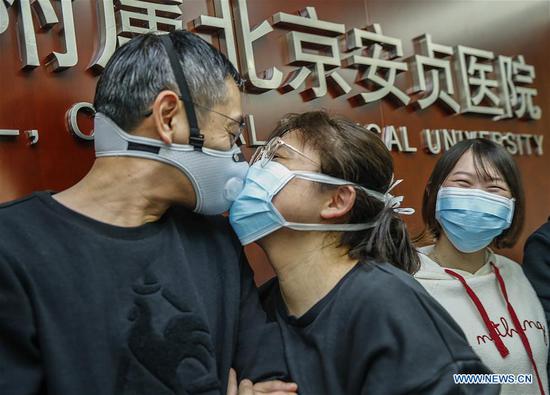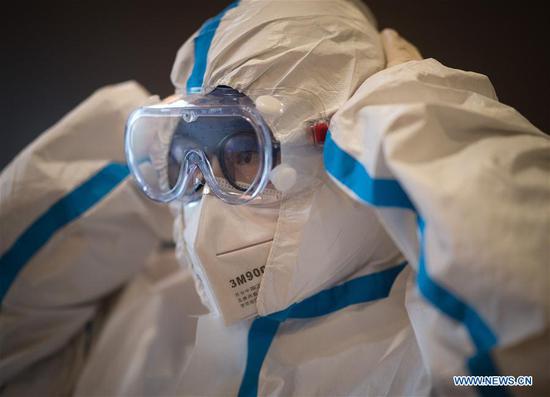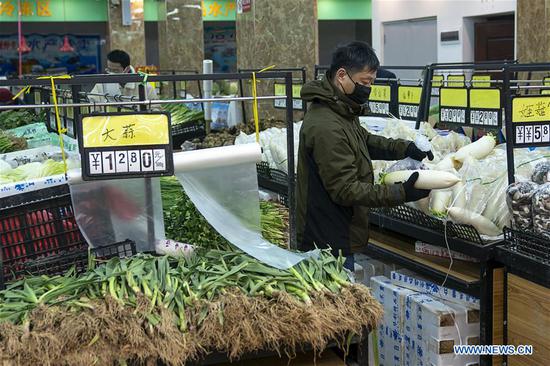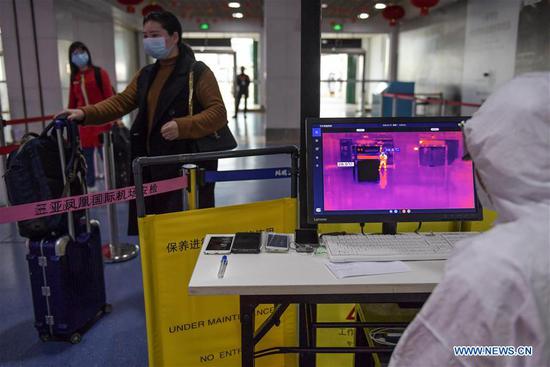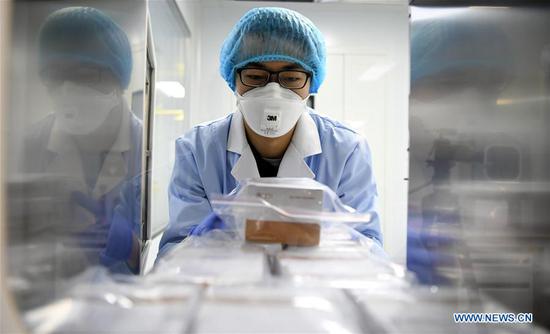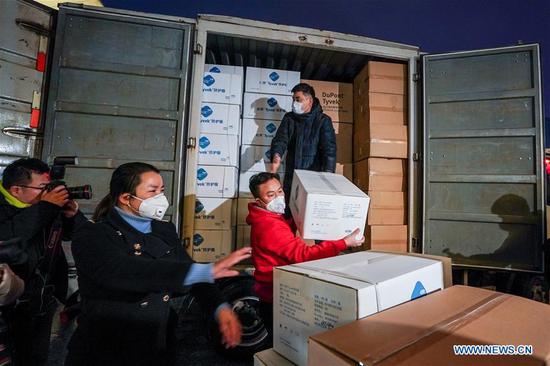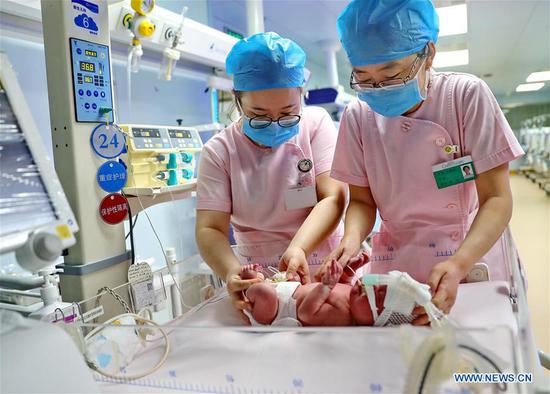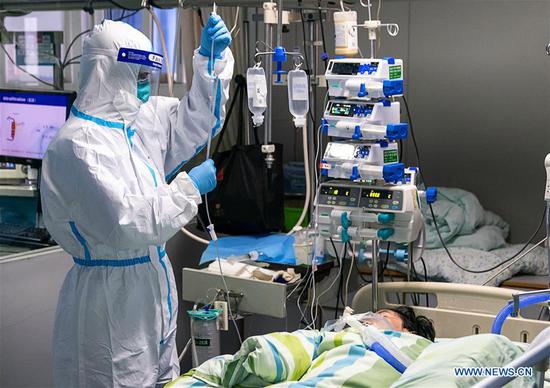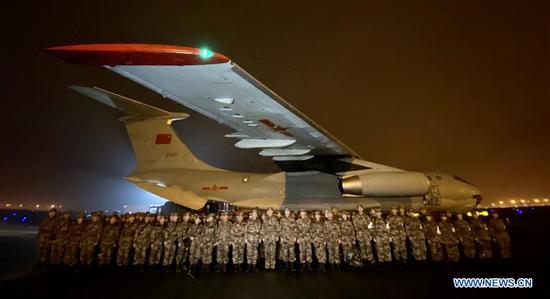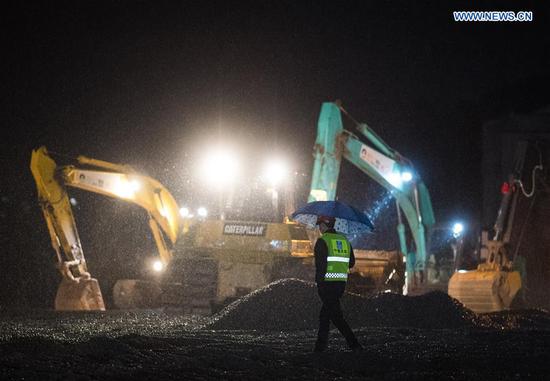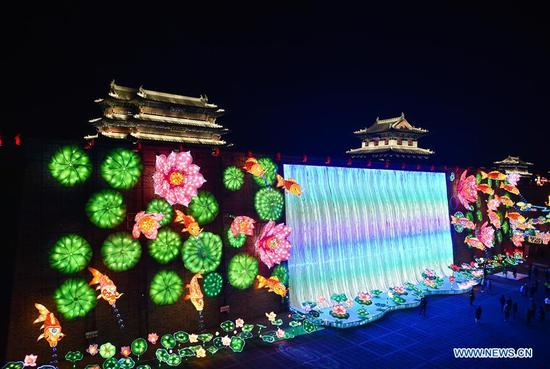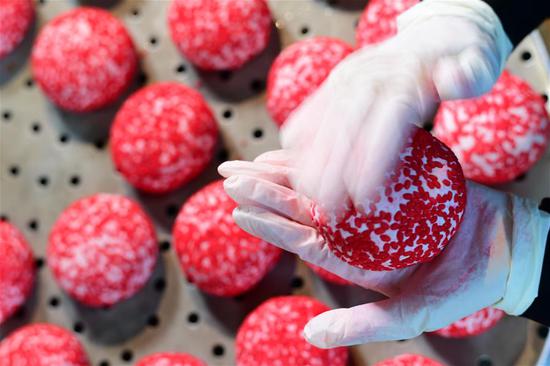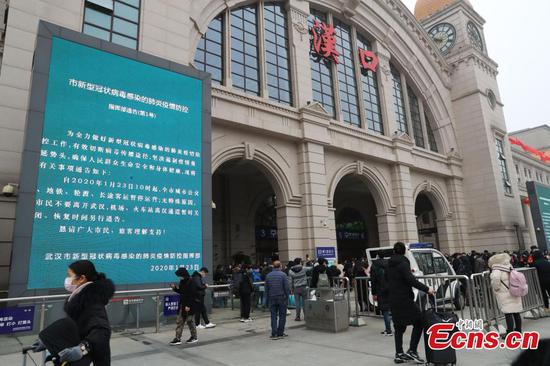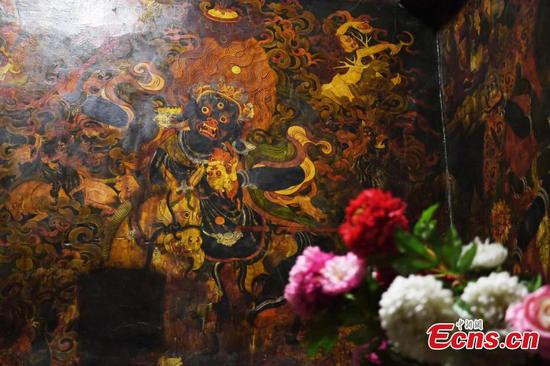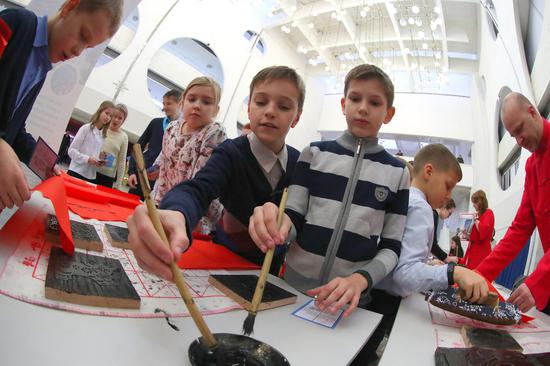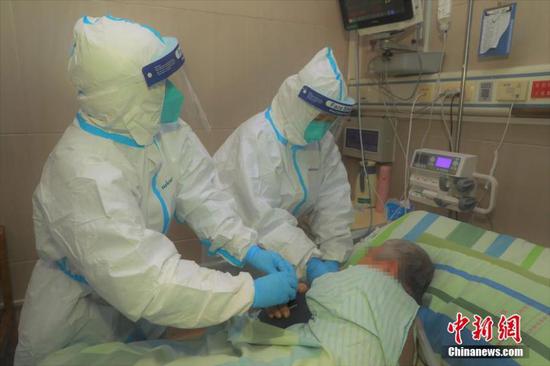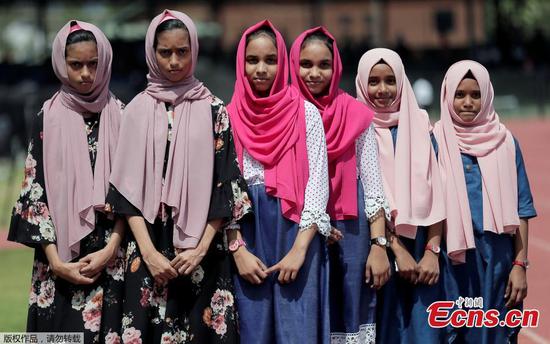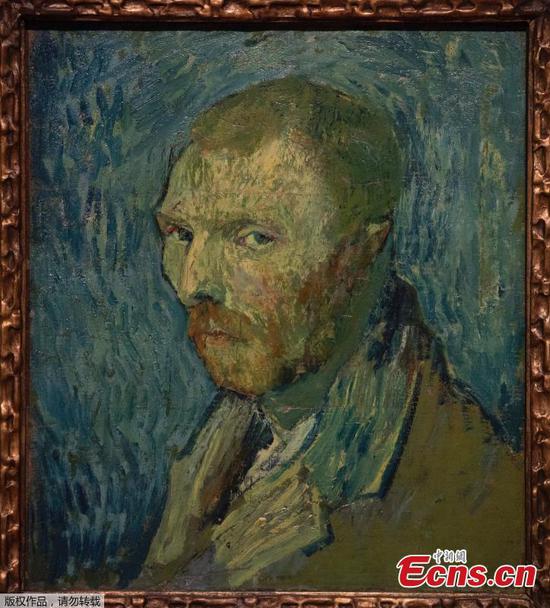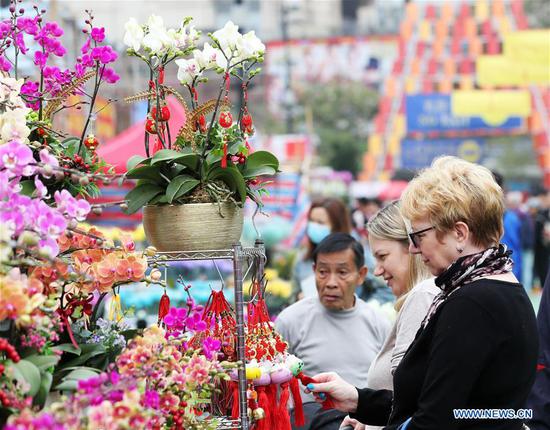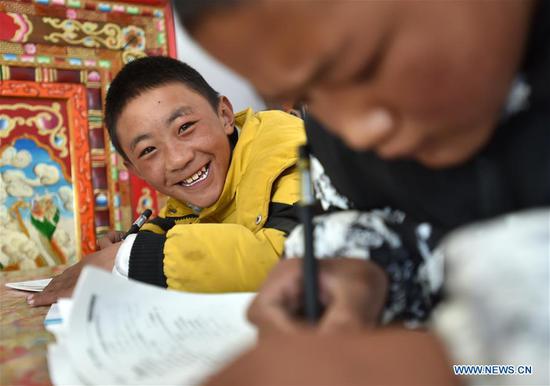72 hours in Wuhan's ICU
At 7:30 am on Jan 24, Lunar New Year's Eve, Tang Guangming and Han Zhenzhong spent about 30 minutes donning protective clothing before starting their first day of intense work in the ICU at Jinyintan Hospital in Wuhan.
The hospital was one of the first designated to treat patients with the novel coronavirus.
Tang and Han are nurses in the Intensive Care Unit at Yichang Central People's Hospital, but they had been assigned to help at the Jinyintan Hospital ICU, which had been hastily established in a regular ward. Initially, conditions in the transformed facility were basic and there was a shortage of medical materials and equipment.
"During the first 72 hours in the ICU, the things that weighed on my mind were how to help the doctors take good care of each patient and how to contribute to the 'white war'.It never occurred to me that it was Spring Festival and I should be having a family reunion meal," Tang said.
"From the expression in the nurses' eyes, I felt their exhaustion and knew the job must be more tiring than I had expected."
On the first day, the two male nurses worked from 8 am to 5 pm. Each shift had six nurses, and each nurse looked after four or five critically ill patients. The ward had 30 nurses in total, but few had ICU experience.
When they finished their shift on the first day, Tang and Han were exhausted. After supper in the canteen, they went to a hotel room to rest. Tang said he drank about two liters of water-he knew his clothes had been soaked with sweat and had dried several times.
In such situations, medical professionals have no time to drink water when on duty. Even worse, they dare not, because they have to change their protective clothing after visiting the bathroom, and the disposable clothing is in short supply.
After an hour at the hotel, Han received a call from the head nurse saying that he was needed to work overtime. He went to the hospital immediately and worked until midnight.
Tang said the nurses had to deal with the medical equipment and look after the patients' daily needs. All the patients were on ventilators, and the machines' alarms reminded him to be on high alert.
"Everyone was as busy as a bee. So, you had to turn the patient over on your own. The work was intense and consumed a lot of physical strength, even for a male nurse like me," he said.
On the second day, the two male nurses used their rest period to make a list to optimize their working procedures.
They adjusted the monitors so they could read the patients' vital signs on central monitors instead of going into the ward, which greatly reduced their exposure to potential risk.
On the third day, they arranged items in the ICU before the start of their 3 pm shift to improve work efficiency. Tang didn't realize that he had cut his hand while treating a patient until he left the ICU at 10 pm.
Medical workers outside of Hubei have been traveling to Wuhan to provide help, with the first teams from Shanghai and Guangdong province arriving on Jan 24.
By Tuesday, about 6,100 medical professionals from across the Chinese mainland had arrived in Hubei to aid in the diagnosis and treatment of people infected with the novel coronavirus.










